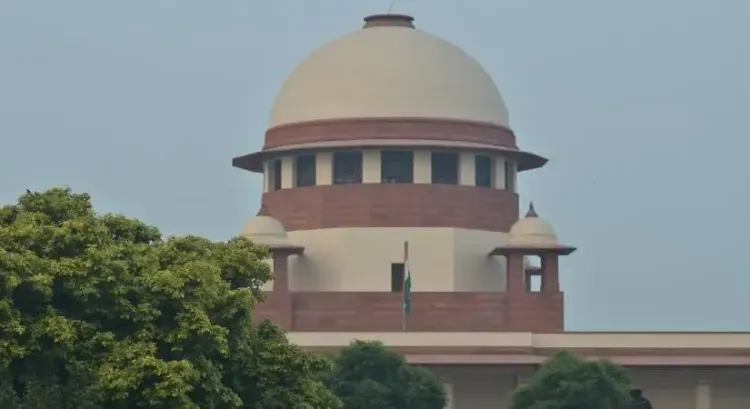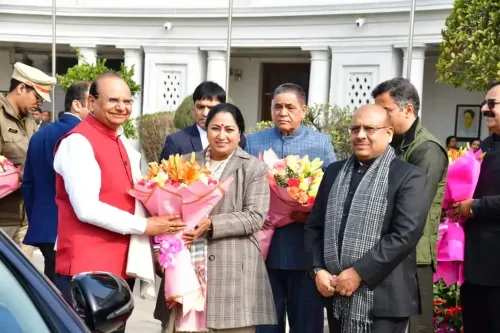Did the Supreme Court Issue a Contempt Notice to Assam's Chief Secretary Over Demolition in Goalpara?

Synopsis
Key Takeaways
- Supreme Court issues notice to Assam’s Chief Secretary
- Concerns over due process in eviction and demolition
- Residents claim violations of their rights
- New guidelines for demolitions set by the Supreme Court
- Government accountability in eviction processes
New Delhi, July 24 (NationPress) The Supreme Court on Thursday issued a notice concerning a plea that seeks contempt proceedings against the Chief Secretary of Assam and other officials for allegedly executing a mass eviction and demolition operation in Goalpara’s Hasila Beel, purportedly in violation of the court’s guidelines.
A bench led by Chief Justice of India (CJI) B.R. Gavai requested responses from Chief Secretary Ravi Kota, Principal Secretary of Revenue & Disaster Management Gyanendra Dev Tripathi, Goalpara District Commissioner Khanindra Choudhury, Superintendent of Police Nabaneet Mahanta, and other officials involved.
“Issue notice, returnable in two weeks. The personal presence of the alleged contemnor(s) is waived until further orders,” the bench, which also included Justice K. Vinod Chandran, directed.
According to the plea, filed by advocate Adeel Ahmed, the petitioners were not provided with adequate time or a chance for a hearing. Instead, they received a notice demanding the removal of their homes, structures, shops, and crops within just two days in an “arbitrary and high-handed manner.”
“The eviction and demolition activities have resulted in the destruction of houses, crops, properties, and belongings of the petitioners and other similarly affected individuals,” the plea states.
The petitioners, who identify as landless, assert that their ancestors settled in the Hasila Beel revenue village of Balijana Revenue Circle approximately 50 to 60 years ago after losing their land and houses due to riverbank erosion caused by the Brahmaputra River.
The plea highlights that the eviction and demolition process was executed without granting a personal hearing or sufficient time for appeal or judicial review, blatantly disregarding the guidelines established in the case titled “In Re: Directions in the matter of demolition of structures.”
In November of the previous year, a bench consisting of then Justice Gavai and Justice K.V. Viswanathan established nationwide directives regarding the demolition of unauthorized structures.
The Supreme Court had warned that any violation of its directives by state authorities could lead to criminal contempt and prosecution.
By issuing a series of directives under Article 142 of the Constitution, the apex court mandated that no demolition take place without a prior show cause notice. Furthermore, it stated that the demolition order would not be enforced for a period of 15 days and must be displayed on a designated digital portal maintained by each municipal and local authority. The Supreme Court clarified that its directives do not apply to unauthorized structures in public spaces, such as roads or footpaths, or in cases where a court has already ordered demolition.










